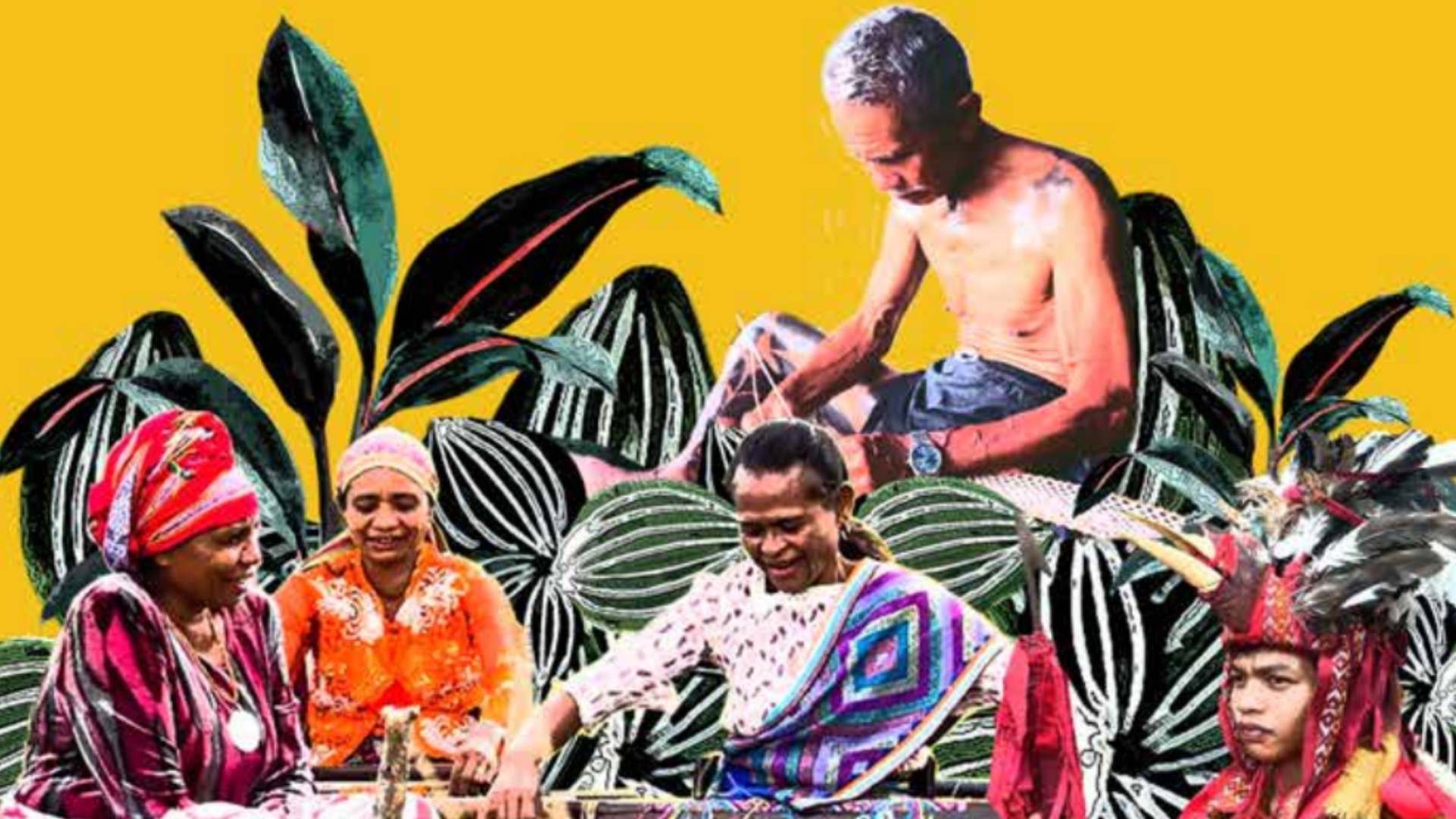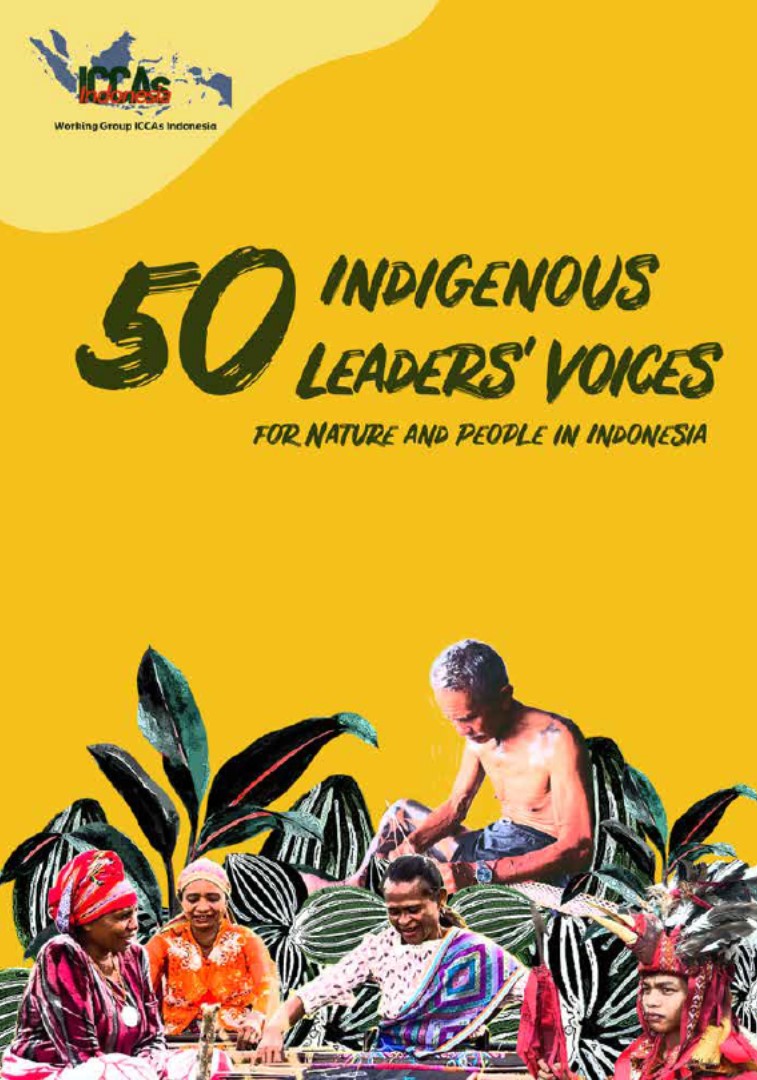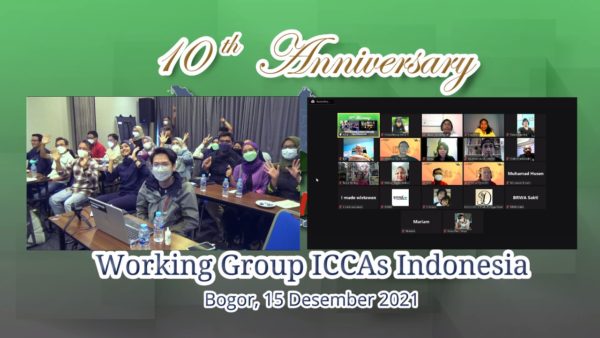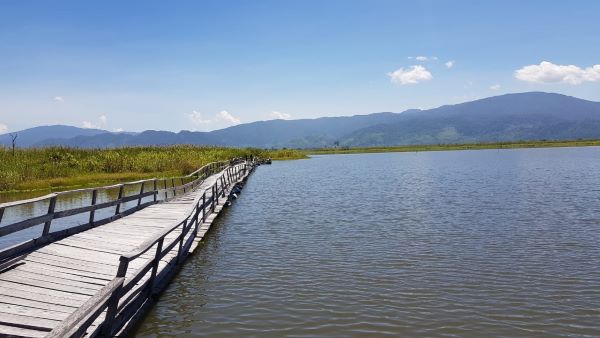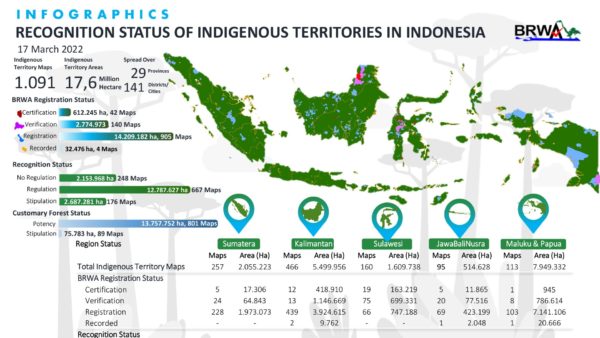The Working Group ICCAs Indonesia (WGII), a member of the ICCA Consortium, recently launched the English version of the 2021 book “Suara Masyarakat Adat untuk Alam dan Manusia.” The collection of interviews in the book demonstrates that customary governance systems effectively protect biodiversity and ecosystem functions in Indigenous territories of life
First published on 07/13/2023
Written by
Cristina Eghenter, Honorary member, ICCA Consortium; and
Cindy Julianty, Working Group ICCAs Indonesia (WGII), ICCA Consortium Member
The book “Fifty Indigenous Leaders’ Voices for Nature and People in Indonesia” results from many contributors, editors, and others’ long labor of passion and patience. The Working Group ICCAs Indonesia (WGII) and the fifty men and women, including elders and youth from across the archipelago, contributed their stories, views, and values to the book.
Several of these contributors attended a national dialogue in 2020 when COVID-19 had just hit the world and drew attention to another interrelated crisis challenging us on top of biodiversity loss, climate change, and inequality.
The decision to gather their voices was a way to keep the momentum in the movement and shine a light on the solutions: the practices and innovations in the territories of life and the knowledge and governance systems that sustain them. The original book in Bahasa, “Suara Masyarakat Adat untuk Alam dan Manusia,” was published next year in 2021.
The English translation was launched on June 12, 2023, at a national event on conservation policies and the rights of Indigenous Peoples and local communities. Government representatives, leaders of ICCAs, traditional authorities, custodian communities, and other stakeholders attended the event.
The interviews with fifty Indigenous leaders and activists from Aceh, Sumatra, Kalimantan, Java, Bali, Lesser Sunda Islands, Sulawesi, Maluku, and Papua, reveal one overarching message: conservation of the natural environment is part and parcel of Indigenous Peoples’ cultures and codes of ethics. For Indigenous Peoples, conservation and sustainable development are integral to their culture and wisdom. Protecting their territories is about protecting the source of all life.
The interviews in the collection demonstrate that customary governance systems effectively protect biodiversity and ecosystem functions in Indigenous territories of life. Within their customary territories, communities have long adopted effective zonation plans that include specially protected areas, tightly guarded according to customary laws, local wisdom, and traditions.
The interviews in the collection demonstrate that customary governance systems effectively protect biodiversity and ecosystem functions in Indigenous territories of life.
The testimonies reveal the growing number of initiatives where self-empowered and self-aware youth continue their fathers’/mothers’ advocacy and embrace their ancestors’ traditions to safeguard their homelands.
However, the stories also make it clear that there is still a long way to go to ensure the recognition and protection of the rights of Indigenous Peoples throughout the Indonesian archipelago against the pressure of agribusiness, logging companies, and protected areas, among others. Only a handful of the fifty interviews are success stories, with many more describing ongoing struggles and difficulties.
All interviewed leaders make a common call to the government to maintain their commitment to passing the law on Indigenous Peoples long sitting in parliament and to recognize the conservation contributions of Indigenous Peoples and local communities to biodiversity targets in the newly agreed Global Biodiversity Framework.
We hope the publication of the fifty Indigenous leaders’ interviews can provide additional inspiration and direction for Indonesia and other countries to secure a just, sustainable, and inclusive future for future generations.
More information about the book
Contributors
Asnawi Zainun, Jespaer Simanjuntak, Jonter Simbolon, Nulker Sabalabat, Mijak Tampung, Datuk Suparmantono, Gilung, Engkos Kosasih, Ajat Sudrajat, Abah Maman Sahroni, Jaro Ruhandi, Putu Ardana, I Putu Wiadnyana, Raden Dedi, Yosef Danur, Hermina Mawa, Beldiana Salestina, Maria Loretha, Bona Beding,Samsudin Laara, Aleta Kornelia Baun, Kristiana Banang, Yurni Sadariah, Effendi Buhing, Lilis, Marko Mahim, Norhadie Karben, Sino, Yulius Yogi, Andris Salo, Njau Anau, Dolvina Damus, Yutaang Bawan, Gat Khaleb, Masrani, Viktor Agus Tohama, Rukmini Toheke, Nedine Helena Sulu, Usman Siabeng, Ramlah, Andi Buyung Saputra, Romba’ Maranu Sombolinggi, La Beloro, Afrida Erna Ngato, Eliza M Kissya, Pieter Dantru, Naomi Marasian, Rosita Tecuari, Pasifikus Anggojai, and Joni Nikodemus Imbiri
Editors
Aria Sakti Handoko, Ariya Dwi Cahya, Cindy Julianty, Cristina Eghenter, Elsa Susanti, Gamin Lampor, Herlambang Aulia Rachman, Kadek Antien Sussy Susanthi, Kasmita Widodo, and Lasti Fardilla Noor
Copy Editor: Maria Victoria (Maia) I. Diokno
English Translator: Irfan Kortschak
Design and Layout: Imam Ma’sud
About WGII
Working Group ICCAs Indonesia (WGII) was established in 2011 and now consists of ten national civil society organizations in Indonesia: JKPP, WWF Indonesia, KIARA, NTFP-EP Indonesia, WALHI, AMAN, Sawit Watch, Pusaka, Huma, and BRWA. The WGII aims to promote and enhance the understanding of natural resource and environmental governance practices in Indigenous Peoples and local communities’ ICCA–territories of life. WGII has been a member of the ICCA Consortium since 2015 and has actively strengthened the ICCA movement at both global and national levels.
